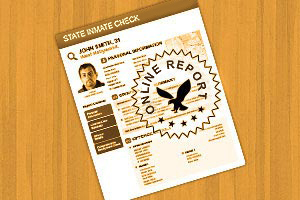New York Public Records
New York citizens have the right to seek out, obtain, study, and use public records held by government agencies, municipal bodies, and law enforcement authorities. This right is presented to them by both New York’s and the United States’ Freedom of Information Law, which states that any record generated by a government authority is considered public unless officially sealed.
These records are available to all members of the general public who are able to access these records in a concise and immediate manner and without requiring the divulgence of personal information unless such information is required to access confidential information.
Criminal records, court records, vital records, and arrest records from over 330 million transparent public records are available on this website.
Are New York Records Public?
Yes. New York public records refer to government-generated documents accessible to state residents and non-residents. The New York Freedom of Information Law is a series of laws that enables the public to access public records. As defined by the New York Freedom of Information Law, public records are any data stored, held, filed, created, or re-created by the state legislature or agency.
What is Considered Public Information in New York?
The following documents are classified as New York public records:
- Court records
- Arrest records
- Criminal records and criminal history records
- Public birth records
- Property records
- Public death records
- Public New York divorce records
Per New York public records laws, these records may exist as physical documents, such as photographs, maps, graphs, charters, manuals, pamphlets, folders, books, designs, opinions, reports, or letters. The public can also access New York public records in digital format, including video, audio, and electronic communication (email and SMS). Per the New York public records act, residents can initiate public data searches through a custodial government agency to obtain public records. (New York record custodians provide paid and free public data searches to the public in accordance with the law.) Residents can also submit public records act requests in writing to such agencies.
Note: documents generated outside the government but currently in a custodian's possession are subject to the New York Freedom of Information Law.
How Do I Find Public Records in New York?
Custodial agencies must send copies of public records to interested and eligible persons within five business days after receiving a public records request. Although there is a uniform procedure on how to check for public records in New York, record seekers may follow these general steps:
Know the Basics of Requesting a Public Record in New York
To check for public records in New York, record seekers must identify the basics of requesting their preferred document. For instance, record seekers must submit accurate, not vague, descriptions before accessing public records. Custodial agencies may reject vague or obscure requests for public documents. Here's an example: to obtain a New York criminal court record, record seekers must provide the record subject's name in the exact order it appears in the record.
Also, requesters must identify if a certified or non-certified copy of a public document will serve the intended purpose and if a record is indeed available under the state's public records law. For example, New York vital records cannot be accessed by the public, only specific parties.
Contact the Custodian Holding the Record
Record seekers must contact the New York department or agency responsible for holding or issuing the record. Next, they must find out the agency's method of providing public documents - some agencies maintain online or offline access, while some maintain both types of access.
Create and Send a Request
Some custodians enable requesters to send requests online, by mail, or in person. Most custodians provide a downloadable request form for filling out the necessary details. In addition, record seekers may use a generalized Freedom of Information Law request form (see example form for New York City) to apply to various custodian bodies in New York. In contrast, record seekers may use a written request to obtain New York public records. Note that a written request form must contain the following essential data:
- The requester's full name;
- The record subject's full name (plus aliases);
- The record subject's date of birth;
- Purpose of the request;
- Date range when the record was documented;
- The case number (this applies to court records);
- Additional information to assist with the search;
- Preferred mode of delivery.
After filling out the form, record seekers may send it by mail, email, in person, or via the custodian's online platform. Most custodians have their contact details in the "Contact Us" section of their webpage. In the absence of a "Contact Us" page, record seekers may forward all Freedom of information requests to the FOIL officer at the following address:
FOIL Officer
NYC Commission on Human Rights
22 Reade Street
New York, NY 10007.
Fax: (646) 500-7159
Email: foil@cchr.nyc.gov
Review and Submit the Public Record
Some public records are not free, and custodians may charge specific fees in line with the New York FOIL. These charges generally cover the cost of printing copies of public documents. Moreover, payment options for obtaining a public record in New York include debit or credit cards, cash payments at the agency's physical address, money orders, and cashier checks. Record seekers will obtain a written response within five business days of submitting a public records request to a custodian.
Using Third-Party Sites to Find Public Records in New York
City Records
Public city records may also be accessible from third-party websites. These non-government platforms come with intuitive tools that allow for expansive searches. Record seekers may either opt to use these tools to search for a specific record or multiple records. However, users will need to provide enough information to assist with the search such as:
- The name of the subject involved in the record (subject must be older than 18 or not juvenile)
- The address of the requestor
- A case number or file number (if known)
- The location of the document or person involved
- The last known or current address of the registrant
Third-party sites are not sponsored by government agencies. Because of this, record availability and results may vary.
Public Records
Public records can also be accessed from third-party websites. These third-party public records aggregate websites offer search services that are non-geographically limited, making the search result expansive and typically straightforward. However, users will need to provide enough information to assist with the search, such as:
- The name of the subject involved in the record as long as the subject is not a juvenile
- The last known or location of the record subject
Third-party public records search websites are not government-sponsored services. Therefore, the availability and accuracy of results can vary.
How Do I Look Up Public Records for Free in New York?
Interested public members can look up New York public records for free via the following methods:
Requesting to View Public Records
Some custodians, such as law enforcement agencies and county clerks, allow interested and eligible persons to view public records during business hours. Moreover, some agencies have kiosks or computer terminals where record seekers can view public documents. However, copying or downloading the document might incur some charges.
Requesting for Online Copies
New York government departments or agencies also maintain online repositories of public documents. Therefore, interested persons may access New York public records, such as sex offenders' lists and inmate records. For example, the New York Department of Corrections maintains an online database for all incarcerated and former inmates in the state. Visitors to the online platform can search for inmates using the inmate's first and last name, NYSID, or DIN (Department ID) number.
Furthermore, public members can access sex offenders' information for free via the New York Sex Offender Registry. The Division of Criminal Justice Services (DCJS) is responsible for maintaining and providing free access to its statewide sex offender registry. The online platform only features data on level 2 (medium-risk) and level 3 (high risk) sex offenders, whereas level sex offenders are not listed on the registry. Through the search offender registry, record seekers can search for sex offenders by name or location.
Also, the New York Department of Finance, via the Automated City Register Information System (ACRIS), maintains an online database containing all property information in the state. In addition, the online platform enables record seekers to search and obtain tax records. To search and access property records on the ACRIS, record seekers must search using the following options:
- Parcel identifier
- Property owner's name;
- City File Register Number/Document ID;
- Reel and Page;
- Document Type;
- Federal Lien File Number.




